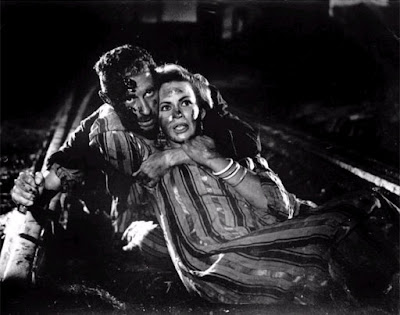Some excerpts from Mike Davis' recent, apocalyptic, very scary account of the end of the Holocene and the onset of the Anthropocene. Be sure to read the
entire account.

"...Whether or not we are actually at the summit of Hubbert's Peak--that peak oil moment--whether or not the oil-price bubble finally bursts, what we are probably witnessing is the largest transfer of wealth in modern history. An eminent Wall Street oracle, McKinsey Global Institute, predicts that
if crude oil prices remain above $100 per barrel--they are, at the moment, approaching $140 a barrel--the six countries of the Gulf Cooperation Council alone will "reap a cumulative windfall of almost $9 trillion by 2020." As in the 1970s,
Saudi Arabia and its Gulf neighbors, whose total gross domestic product has almost doubled in just three years, are awash in liquidity: $2.4 trillion in banks and investment funds according to a recent estimate by
The Economist. Regardless of price trends, the International Energy Agency predicts, "more and more oil will come from fewer and fewer countries, primarily the Middle East members of OPEC [The Organization of the Petroleum Exporting Countries]."
Dubai, which has little oil income of its own, has become the regional financial hub for this vast pool of wealth, with ambitions to eventually compete with Wall Street and the City of London. During the first oil shock in the 1970s, much of OPEC's surplus was recycled through military purchases in the United States and Europe, or parked in foreign banks to become the "subprime" loans that eventually devastated Latin America. In the wake of the attacks of 9/11, the Gulf states became far more cautious about entrusting their wealth to countries, like the United States, governed by religious fanatics. This time around, they are using "sovereign wealth funds" to achieve a more active ownership in foreign financial institutions, while investing fabulous amounts of oil revenue to transform Arabia's sands into hyperbolic cities, shopping paradises, and private islands for British rock stars and Russian gangsters.
Two years ago, when oil prices were less than half of the current level, The
Financial Times estimated that
planned new construction in Saudi Arabia and the emirates already exceeded $1 trillion dollars. Today, it may be closer to $1.5 trillion, considerably more than the total value of world trade in agricultural products. Most of the Gulf city-states are building hallucinatory skylines--and, among them, Dubai is the unquestionable superstar. In a little more than a decade, it has erected 500 skyscrapers, and currently leases one-quarter of all the high-rise cranes in the world.
This super-charged Gulf boom, which celebrity architect Rem Koolhaas claims is "reconfiguring the world," has led Dubai developers to proclaim the advent of a "supreme lifestyle" represented by seven-star hotels, private islands, and J-class yachts. Not surprisingly, then,
the United Arab Emirates and its neighbors have the biggest per capita ecological footprints on the planet. Meanwhile, the rightful owners of Arab oil wealth, the masses crammed into the angry tenements of Baghdad, Cairo, Amman, and Khartoum, have little more to show for it than a trickle-down of oil-field jobs and Saudi-subsidized madrassas. While guests enjoy the $5,000 per night rooms in Burj Al-Arab, Dubai's celebrated sail-shaped hotel, working-class Cairenes riot in the streets over the unaffordable price of bread."
Interjection: Is it time to bring back into print Fred Halliday's
Arabia Without Sultans? Or for someone to pen a volume 2? Definitely time to revive the sentiment...
Back to Mike Davis:
"...the wealthy oil enclave of Abu Dhabi (like Dubai, a partner in the United Arab Emirates) brags that it has planted more than 130 million trees--each of which does its duty in absorbing carbon dioxide from the atmosphere. However, this artificial forest in the desert also consumes huge quantities of irrigation water produced, or recycled, from expensive desalination plants. The trees may allow Sheik Khalifa bin Zayed to wear a halo at international meetings, but the rude fact is that they are an energy-intensive beauty strip, like most of so-called green capitalism....
Will the electorates of the wealthy nations shed their current bigotry and walled borders to admit refugees from predicted
epicenters of drought and desertification like the Maghreb, Mexico, Ethiopia, and Pakistan? Will Americans, the most miserly people when measured by per capita foreign aid, be willing to tax themselves to help relocate the millions likely to be flooded out of densely settled, mega-delta regions like Bangladesh?...
Even in the most optimistic simulations, the agricultural systems of Pakistan (a 20 percent decrease from current farm output predicted) and Northwestern India (a 30 percent decrease) are likely to be devastated, along with
much of the Middle East, the Maghreb, the Sahel belt, Southern Africa, the Caribbean and Mexico. Twenty-nine developing countries will lose 20 percent or more of their current farm output to global warming, while agriculture in the already rich north is likely to receive, on average, an 8 percent boost."
(
All italics are mine.)















